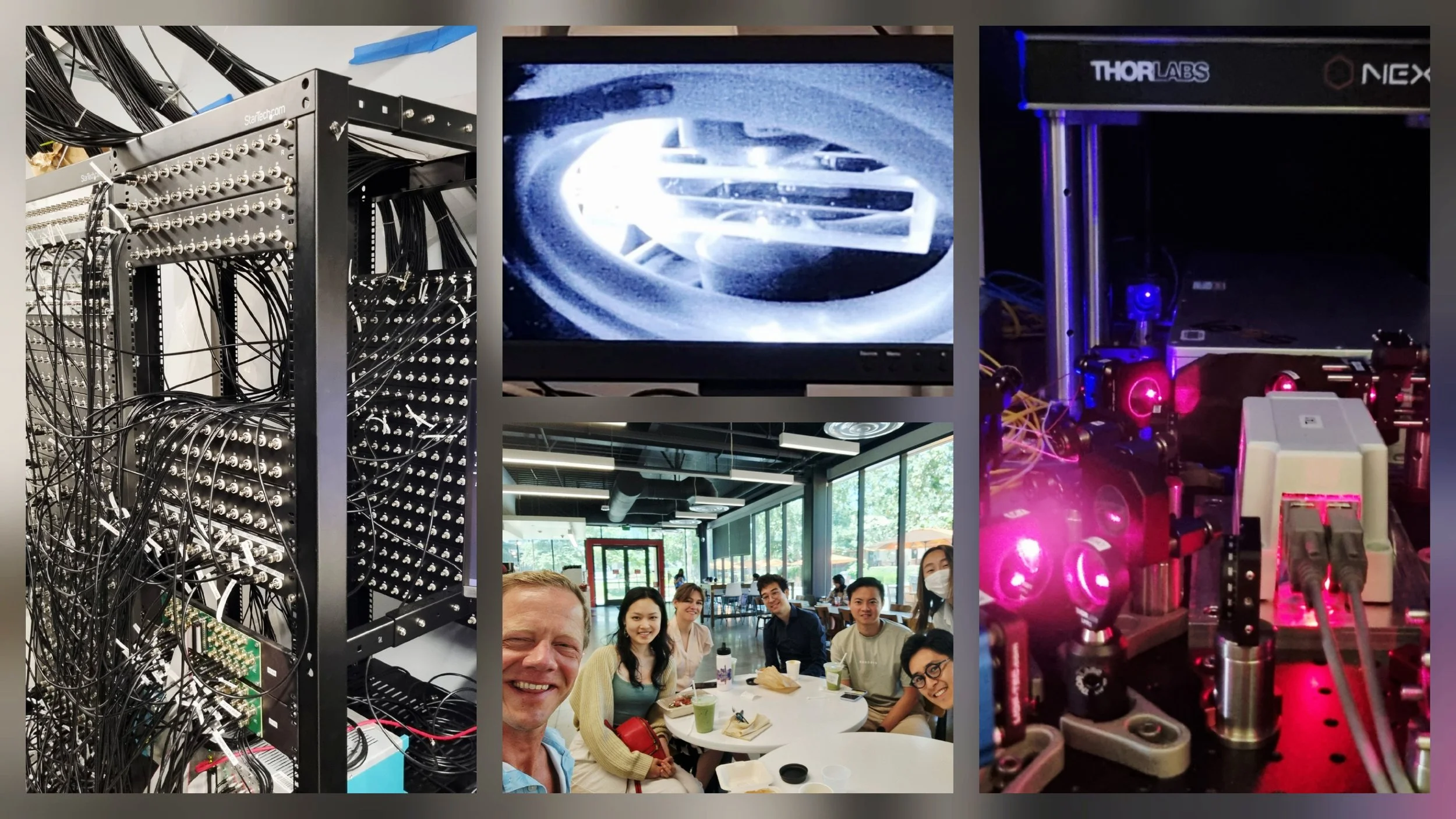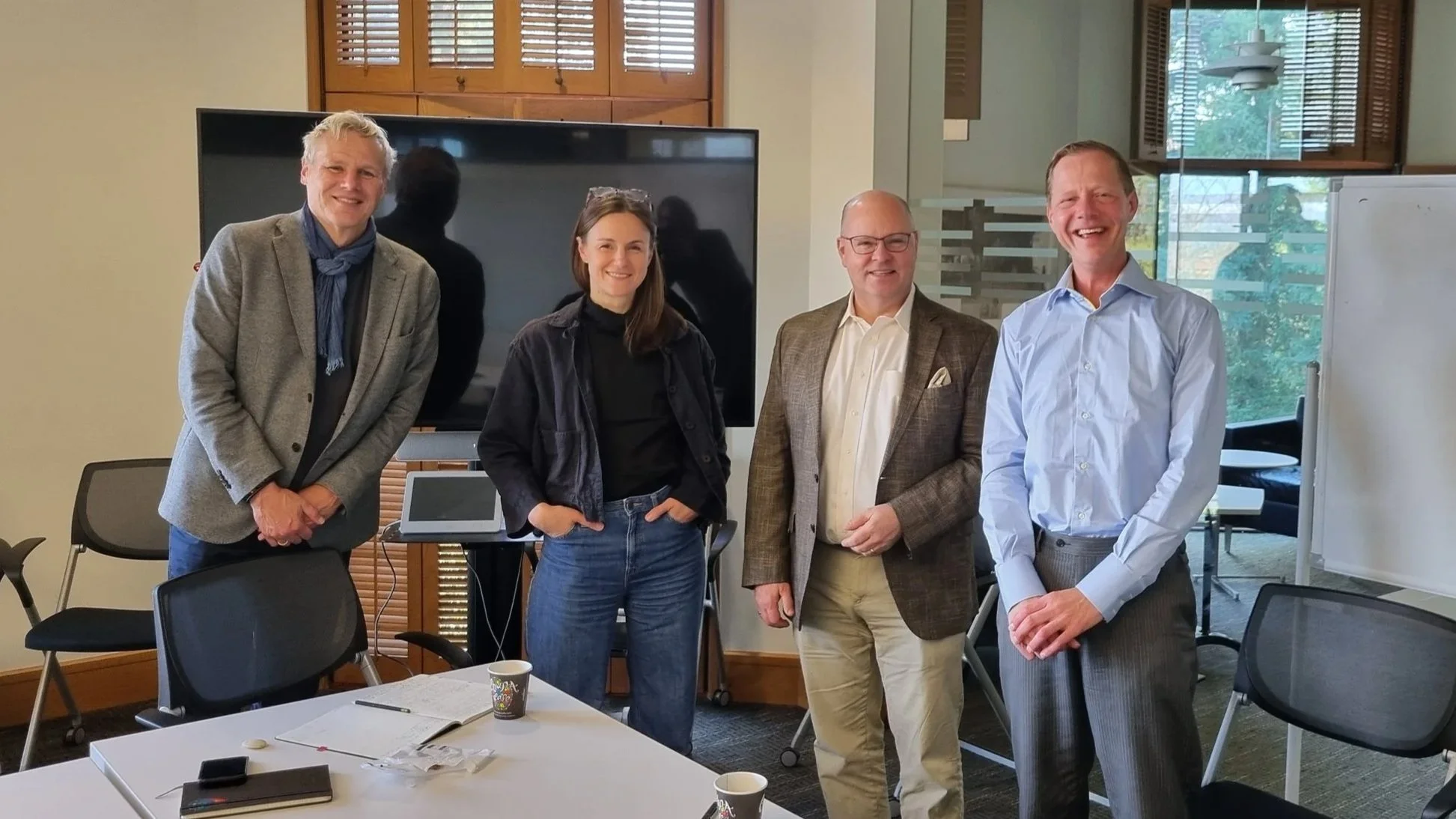Oxford University, 10 November 2025—This afternoon, Professor Mauritz Kop joined distinguished colleagues at the University of Oxford for a high-level panel discussion titled “Quantum Supremacy: Technology, Strategy, and International Order.” Hosted by the Department of Politics and International Relations (DPIR) and the Oxford Emerging Threats & Technology Working Group (ETG), the event convened a diverse audience of scholars, policymakers, and industry leaders to dissect the rapidly evolving landscape of quantum technologies.
Moderated by Sarah Chen, the session moved beyond the hyperbolic headlines often associated with quantum computing to address the granular realities of strategy, governance, and international security. Alongside Kop, the panel featured Dr. Simson Garfinkel of BasisTech, Angus Lockhart of SECQAI, and Professor Michael Holynski of the UK Quantum Technology Research Hub. The resulting dialogue offered a dense, forward-looking examination of quantum threats and opportunities—ranging from the precision of quantum sensing and the urgency of post-quantum cryptography (PQC) to the geopolitical friction points of supply-chain resilience and the risk of sub-optimal governance lock-in.
The Mission of Oxford’s Emerging Threats & Technology Working Group
The context for this discussion was set by the unique mandate of the host organization. The Emerging Threats & Technology Working Group at Oxford University stands as one of the few academic platforms systematically examining how critical and emerging technologies (CETs) reshape the security environment. Meeting regularly to assess the national-security implications of technologies such as artificial intelligence, quantum computing, directed energy, and space systems, the Group brings together participants from academia, industry, and government in a hybrid format.
This institutional design is consequential. By convening interdisciplinary seminars and publishing detailed session reports, Oxford Emerging Threats builds a community capable of treating quantum technology not merely as a laboratory curiosity or a narrow industrial race, but as a systems problem. Within this forum, quantum is framed as a variable that touches deterrence, alliance cohesion, human rights, and the resilience of critical infrastructures. For Stanford RQT (Responsible Quantum Technology), represented by Kop, this mandate aligns closely with the necessity to develop governance, standards, and strategic frameworks that keep quantum innovation compatible with an open, rules-based international order.
Reframing the Narrative: From Quantum Supremacy to Allied Quantum Assurance
In his opening remarks, Kop challenged the utility of the term “quantum supremacy” when applied to state actors. While the term has technical validity in describing a computational threshold, legally and strategically it acts as a misleading metaphor. Kop argued that for democratic states, the more relevant concept is assurance: the ability of allies to deploy quantum-era capabilities in a way that is verifiable, interoperable, and resilient, while simultaneously preserving an open international order.
To operationalize this, Kop proposed the framework of Allied Quantum Assurance, a strategy built upon recognizing that the world is currently crossing a “quantum event horizon.” Much like an astrophysical event horizon represents a point of no return, the current governance tipping point implies that early decisions on standards, export controls, supply chains, and research security will lock allies into long-lasting path dependencies.
The immediate driver of this urgency is the “harvest-now, decrypt-later” (HNDL) risk—a metaphorical “Q-Day” scenario where data exfiltrated today is decrypted by a future, Shor-capable quantum computer. This reality reframes strategic stability: whereas classical nuclear deterrence rests on mutually assured destruction, quantum security centers on deterrence-by-denial, achieved through informational assurance and operational resilience.












